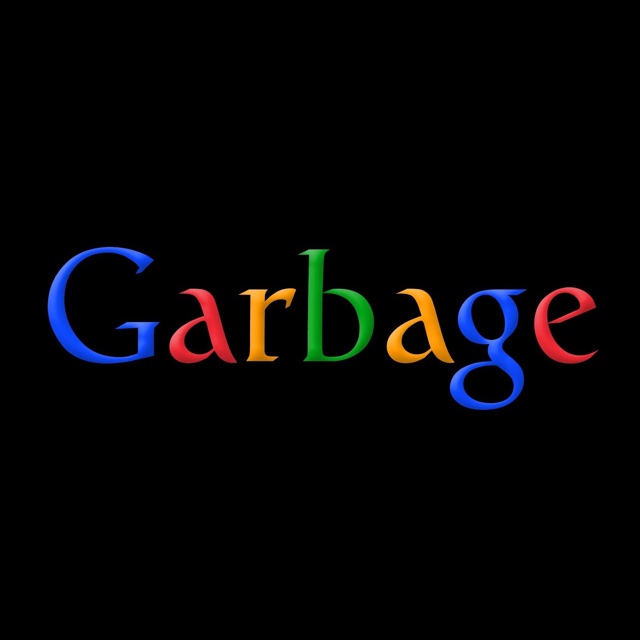When is an ad an advertisement and not a recommendation? Microsoft clearly likes to use the term recommendation for what others may see as an advertisement.
There are recommendations in the Start menu, Settings app, Lock screen, File Explorer, Get Help app, and other areas of the operating system already. These are often not that useful. App recommendations in the Start menu are limited to Microsoft Store apps.
Now, Microsoft is testing recommendations in the Microsoft Store app. If you never use the app, you won’t be exposed to these. If you do, you may notice recommendations popping up when you try to use the built-in search.
First spotted by phantomofearth on X, two or three recommendations are shown whenever search is activated in the official Microsoft Store app.
I’m so done with companies claiming my house for their ads.
It’s my house i decide what makes it in as i pay the rent and i bought these devices, so fuck off.
Microsoft:

Omg I’m so mad about this
lol jk I use Linux
I use Linux at home and am disappointed with this news. I can’t help having to use Windows at work.
Most workplaces have those disabled through the group policy editor and the likes. I’ve never seen a single ad on my work laptop. Cortana, copilot and all that crap are also disabled by default.
I’d be curious at the percentage of windows users actually using the store app.
As for the context of these ads, the store would kind of make more sense than within your settings landing page, start menu, search dialog, browser nagware, solitaire app etc.
If I remember correctly some (mainly Microsoft made apps) are store only and some system apps are updated through it so probably a large part of users use it
Anecdotally, I don’t know anyone that uses it. In the years working IT since the Store came out, not a single coworker has asked me about it.
Logging into my customer’s computers and I don’t see any evidence that they use it either.
This is a fair point, an I had considered this to be a case but the store is capable of automatically updating apps in the background. I believe this is the default behaviour but I could be mistaken.
There is also a chance a user may be directed to the store if they’re required to buy the HEVC or install the AV1 system plugins.
The more relevant question IMO is what proportion of software (or by revenue) is installed through the Windows store.
Because compared to android (even counting Amazon fire and whatever other third party devices), I’m guessing that’s pretty low.
It’s a PC. Why would anyone use “the store” to install anything?
People need to stop complaining about the ads and they need to start complaining about the existence of a Windows monetization team.
Kill that team now while the revenue is small and the shareholders won’t throw a giant hissy fit.
As long as that team exists, they’re going to be putting ads in shit. Cut the head off the snake.
Microsoft put themselves in this position when they started giving out Windows 10 for free. It was effective in bringing most of the market onto the new version, but it set an expectation which it now feels like they can’t break, so they’re also giving Windows 11 away. Now to offset that missing revenue, they have to do something to extract value from users.
I don’t see how they could stop this without replacing it with something more exploitive.
Microsoft is the only company that charges for an operating system so frankly I don’t understand why they feel entitled to that income anyway
It’s effectively bundled with Apple hardware (which also dramatically lowers their development costs; they don’t support anything they don’t ship and are perfectly willing to abandon hardware once it no longer supports the level of hardware features they feel the new OS version needs. I’m not sure it’s that different.
Android is free (maybe? Do phone manufacturers pay for Google play branding?), but they make their money by having the lions share of software going through their storefront. Microsoft is never going to do that with Windows.
Back in the 90s Apple charge for OS upgrades. I saved my allowance money to get OS 8 and was super happy when I got OS X 10.2 for Christmas. Once they could reliably deliver upgrades over the Internet they stopped charging for it.
The story I always heard was that there were some weird accounting rules that were, if not codified legally, common practice at the time, that made the book keeping on free updates sketchier. But I don’t know about the validity of that.
I definitely don’t think “free” justifies any of Windows bullshit. I did pay for 10 (pro) for gaming several years back, but with the real emergence of proton the steam deck accelerated, I wouldn’t install windows on any of my systems for free now. They’re super hostile to users and are just assuming that inertia is good enough that they can get away with it.
You could say that about any product or service. “They don’t charge for a steering wheel on your car it’s bundled in.” But that’s not a useful or meaningful distinction.
The issue here is windows famously charged until very recently (and still sort of does) which distinguishes it from those that don’t charge.
But Windows is the product. Hardware is a small part of their revenue, and most of their install base is hardware that isn’t theirs.
MacOS is also part of Apple’s product, but they pretty much only sell higher margin premium hardware that both pays for and streamlines the OS development process.
Windows OS is not the product.
Yes, it absolutely is.
Google and Apple are definitely charging for that software development. In the case of Apple, it is being folded into hardware prices or used as a loss leader for pricy subscriptions / apps.
Google is also making a buck on subscriptions / apps, but instead of hardware, they’re also making money from licensing software to 3rd party Android manufacturers, and because Google gonna Google, they want that ad revenue.
And I would also argue that a lot of Linux distros make money from professional services and what not.
Most of the big boys aren’t doing the work for free
Microsoft put themselves in this position when they went against the open source movement.
It moves slowly but inexorably, and sooner or later Linux or another open source OS will take their spot on the desktop.I’d be happy to buy the OS too, but I want it to be a one-time payment and to quit with ads and all telemetry.
That’s so old fashioned grandpa. Just give them a straw and let them sip out of your bank account like everyone else. You sound like the kind of person that lives in a house with a yard.
Seriously though, subscription models seem here to stay and they’ve just made for an incredibly adversarial relationship between industry and consumer.
I hate the rent-seeking economy.
This, so much. Hell I’ll pay the old prices to never see an ad or pop up.
I remember being young and thinking an OEM copies price was brutal lol.
There is nothing free in this life…
Linux is free.
Monetarily yes, but not free of time, in fact time it’s the most precious resource we have.
A one-off time ‘investment’ of switching to Linux will save you from all future cases of searching for how to wrestle with the latest Windows crapware. If you switch, you’ll be in time-debt for a few months, and after that you’ll be ahead - and you’ll stay ahead indefinitely. You’ll also have the piece of mind that you are not being spied on and monetised by your OS.
Personally I use Linux, and TBH as I value my free time it’s why I say it, if you need something that just works and don’t want to mess around looking for fixing trivial errors on the internet I would suggest using windows to 95% of people, I hate windows but I must admit if it’s about stability at exchange of looking ads with not tech ability definitely it’s the most recommended.
Linux it’s amazing but it’s not for everyone.
It’s like the eternal battle Apple VS Android, if you just want it to work and don’t want to mess around with trivial errors definitely Apple it’s the choice, you lose liberty and privacy but for most people it will work fine.(I use Android)
Your argument sounds OK, but is probably stuck a bunch of years in the past. I observe the opposite lately.
Like I want to do something trivial on windows, like move the fucking taskbar on the left side of the screen, I have spent time searching and it still does not work. At lest on Linux if something does not work you have a leg to work on and a community to help. Have you seen the windows forums when encountering an issue? It’s tragic.
It’s like the eternal battle Apple VS Android
My subjective opinion: Comparing Linux v Windows to iOS v Android is a terrible analogy. Both mobile OS work fine and have little differences.
I think this overstates the “you must futz with it” of both Android and the common Linux desktop. Broadly speaking, both are pretty much fine out of the box for most people and the stuff they are likely to want to do to Windows is similarly easy to do with a likely default desktop environment (I’d say KDE more likely than Gnome, since Gnome opts to try not let you do a lot of stuff and demands you have to do “weird stuff” for some customizations). You don’t have to play with “expert tiling-only window manager N” or go off the deep end tweaking to the Nth degree.
Same with Android, though with even less likelihood of anyone bothering to go “off script”. 99% of Android users never touch adb, never do an oem unlock, never boot an aftermarket OS load.
The fact that you can, does not imply you must.
Are we speaking metaphorically or literally? sharpens blades
Yes
Ad injection will continue till public morale improves
When is ad an advertisement and not a recommendation?
Always? That’s why it’s called ad instead of recommendation
Then the question is: “When is a recommendation an ad?”
For which I’d say: When the person recommending it is gaining something from it
That’s not really a good description either. Advertisements are pretty clear: the deliberate promotion of a product or service to an audience. Saying “I like this app” in natural conversation doesn’t mean I don’t stand to benefit.
Or at least when they recommend it with the intent of gaining something from it
MS 2 decades late to Google’s ad game.
I would say a “recommendation” is an ad when an accountant is involved instead of (or in addition to) a curator. Even if it’s Microsoft recommending Microsoft’s products, department budgets probably track that internally (though I’m sure the official accounting is done in a way that shifts profits to a tax haven).
Yeah, basically as soon as money changes hands, a recommendation becomes an ad.
While I hate ads as much as the next person, I’m having trouble getting outraged by ads in an app store. “Recommendations” are kinda par for that course. Sure, it would be nice if those “recommendations” actually reflected stuff I was interested in and not just who paid Microsoft the most for ad placement. But, I also aggressively turn off telemetry (and actually don’t use Windows at home). So, it’s not like I expect useful recommendations anyway.
I have used Windows 10 for years and recently switched to Windows 11 and I don’t think I’ve ever seen an ad in my day to day OS use. I don’t do the registry edits or turn off the telemetry stuff, either. I don’t know what I’m doing differently but I’m not seeing these ads that apparently infected Windows.
The home edition of windows has these ads baked in, but the pro/enterprise editions seem to be able to avoid this for now.
I have home.
If you also live in Europe or set up your computer in the US with European English then you can also skirt some of the ads as well
Most of these reports are about preview builds of Windows.
That said, surely you have seen recommendations from Microsoft to try their Office package and such oil up. It’s like that, but more intrusive.
I can’t believe Microsoft is making me switch from Windows to Mac and Linux, but here we are.
Actually, no I’ve never seen an ad for office but that might be because I’m already a customer.
Are you running Home or a Pro-like version?
How many more of these will it take, until people start looking for alternatives
Until it affects businesses it won’t change. Once they start to add them to Office, it’s all over.
I think it is already happening gradually. SteamDeck has single handedly opened the eyes of so many already. M1 Macs did that for macOS as well.
I think it’s grossly undersold personally. What valve has managed is getting the single target platform open source could never agree on.
It’s a small miracle, and it bleeds over into stuff like device driver support in a way I don’t think most people who didn’t deal with Linux in the 2.x era immediately appreciate.
If Linux on the desktop has a surge, they did a lot of the legwork.
The ads are in the app store. I don’t really understand why that’s a problem. Although I’m probably the only tool out there that actually likes Windows 11.
lol yep you probably are
Self aware idiot.
<Linux User> That’s unfortunate.
i can’t believe they wrote an entire article to whine about ads IN A STORE APP
Gotta keep that rage up.
Listen, bill gates just needs to buy more arable land. This, of course, is your capital to earn by being good and not using linux or Firefox to banish these innocent little ads.
Gates could never make another cent and it wouldn’t matter to him in regards to purchasing power.





















